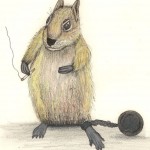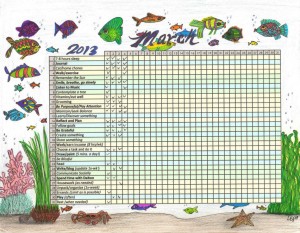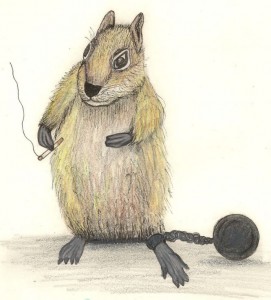A Speech by Abigail B., A.R.T.S. Founder
“There is a vitality, a life force, an energy, a quickening, that is translated through you into action and because there is only one of you in all of time, this expression is unique. And if you block it, it will never exist through any medium and be lost. The world will not have it.”
– Martha Graham, 20th Century dancer and choreographer
Throughout history there have always been blocked artists. They are in all social structures and economic spheres, among the educated and uneducated, in all cultures, no matter what the language, religion or beliefs. Blocked artists feel hopeless. They are depressed, lonely, alienated, angry, and often suicidal. They struggle against internalized messages of fierce negativity that block their creative expression. They are unable to bring forth their gifts to benefit society.
Over 25 years ago, in 1984, A.R.T.S. Anonymous was started in New York City. Today the A.R.T.S. program of recovery stretches half way around the world, from Sydney, Australia to Stockholm, Sweden. There are meetings all across the United States, in Canada, Mexico, England, Ireland, the Netherlands, France, Germany, Italy, Sweden, and Australia. Literature has been translated into French, Italian, German and Swedish. Collectively all these meetings and their members make up the wide circle of A.R.T.S.
The artists in A.R.T.S. Anonymous are in recovery. With group support, books can be written. Symphonies composed. Art created and exhibited in galleries. But none of it just happens. Newcomers must take action to change the way they think. The block exists because of what we came to believe as children. Yes, the child was a victim of circumstances, but the adult does not have to continue to be a victim. In A.R.T.S. Anonymous a thorough understanding of the Twelve Steps will overcome the child-dictated belief system. Fully conscious adults have a choice whether to become the artist they always dreamed they could be – or not.
A.R.T.S. stands for Artists Recovering through the Twelve Steps. The Twelve Steps are twelve universal principles that exist in all religions. They plainly speak of a basic spirituality that everyone everywhere can readily understand and accept. They sound deceptively simple yet when fully internalized, they can reshape a life from despair to great joy – from non-action to action. Recovery happens in Twelve Step Programs where none was possible before.
The nature of the creative block is severe and chronic avoidance. This psychological and spiritual disorder permeates deep into the psyche. It restricts life, narrowing it down, until the unlived life fills with desperation.
The huge and monolithic creative block can be compared to a gigantic iceberg, where only the frozen top can be seen. That the blocked artist cannot work is only the visible symptom of a much bigger and darker problem. Below the water line of the iceberg, there is an even bigger mass, perhaps even ten times as large, that scrapes the bottom of the ocean floor. Behind the creative block is a powerful hidden syndrome of crippling fears. This massive block which prevents the artist from action was calved from severe family trauma.
The medical community references this complex of fears as an Avoidant Syndrome. Artists who suffer from the Avoidant Syndrome often feel socially vulnerable, unsafe in many relationships, and at times unwanted to the extreme. Growing up in trauma creates the block, and the block is pathological, avoidant and phobic in nature. Medically this serious disturbance is known for its high incidence of attempted suicides and suicide.
Avoidance can suddenly shut down the artist at any stage of her or his professional life. A grand piano just ten feet from the couch cannot be approached and has sat waiting to be played for over ten years. A photographer is grieving because he is going blind. The dancer has chronic back problems. For both the photographer and the dancer finding a new art form feels impossible. The composer of numerous symphonies will not submit his work to competition for fear of critical rejection. The visual artist is too terrified to work alone, thus is dependent upon classes but can’t afford them. The singer continually loses her voice when performing because throughout her childhood she was unheard, invisible, and devalued by her parents. A comic who was the family scapegoat struggles with low self esteem. A writer continually recreates hostile work environments which prevent him from earning a living from his art — he grew up in an extremely violent family. The child prodigy now an adult can no longer play the violin. A painter shut down after art school. An actor is afraid to audition. A successful newspaper writer is unable to finish his book.
For all of these artists, their life is unmanageable. Deep down they feel helpless and hopeless. Their fears about moving forward are both complex and phobic in nature. But these blocked artists were not born with these fears and the fears must be addressed in order for them to move forward in their lives.
A.R.T.S. is the only Twelve Step Program where the members admit to being powerless over something positive – their creativity. Genetically gifted, the gifts will always be there — calling out for expression until we die. Artists cannot deny their gifts — thus they are powerless over their creativity.
The curse for the blocked artists is that they cannot give their gifts expression and this monolithic block has made their lives completely and totally unmanageable.
Continue reading →
 Got “The Redeemer” by Jo Nesbo,” which I had reserved for some months. This book belonged in between the “Harry Hole” books I read at the end of last year, but for some reason the English translation was not available. The library had a copy that had been published in Canada. It finally became available. Now I’ll need to refresh my memory….
Got “The Redeemer” by Jo Nesbo,” which I had reserved for some months. This book belonged in between the “Harry Hole” books I read at the end of last year, but for some reason the English translation was not available. The library had a copy that had been published in Canada. It finally became available. Now I’ll need to refresh my memory…. I also picked up a copy of “The World of Edward Gorey” by Ross/Wilkin. Gorey is one of my all-time favorite artists. Not only do I love his art, but I love his wit. While his work has been described as “macabre“, I see it as simply a comment on all that is ABSURD about our world. An interesting person; he made the world a better place.
I also picked up a copy of “The World of Edward Gorey” by Ross/Wilkin. Gorey is one of my all-time favorite artists. Not only do I love his art, but I love his wit. While his work has been described as “macabre“, I see it as simply a comment on all that is ABSURD about our world. An interesting person; he made the world a better place. And while I was at (I love browsing through art books), I also picked up “Making Mischief – a Maurice Sendak Appreciation” by Gregory Maguire. Sendak is another of my favorites. I will never part with my son’s copy of “Where the Wild Things Are;” it’s now a treasured part of my collection!
And while I was at (I love browsing through art books), I also picked up “Making Mischief – a Maurice Sendak Appreciation” by Gregory Maguire. Sendak is another of my favorites. I will never part with my son’s copy of “Where the Wild Things Are;” it’s now a treasured part of my collection! And, finally, I also picked up on a whim, this wonderful book: “The Zen of Seeing (Seeing/Drawing as a Meditation)” by Frederick Franck.
And, finally, I also picked up on a whim, this wonderful book: “The Zen of Seeing (Seeing/Drawing as a Meditation)” by Frederick Franck.

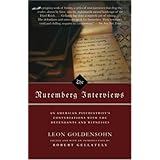




 The weather has been lovely and the trees are starting to bud – I think Spring is finally making an appearance.
The weather has been lovely and the trees are starting to bud – I think Spring is finally making an appearance.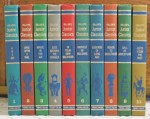
 Mischief in Fez by Eleanor Hoffmann and Fritz Eichenberg
Mischief in Fez by Eleanor Hoffmann and Fritz Eichenberg